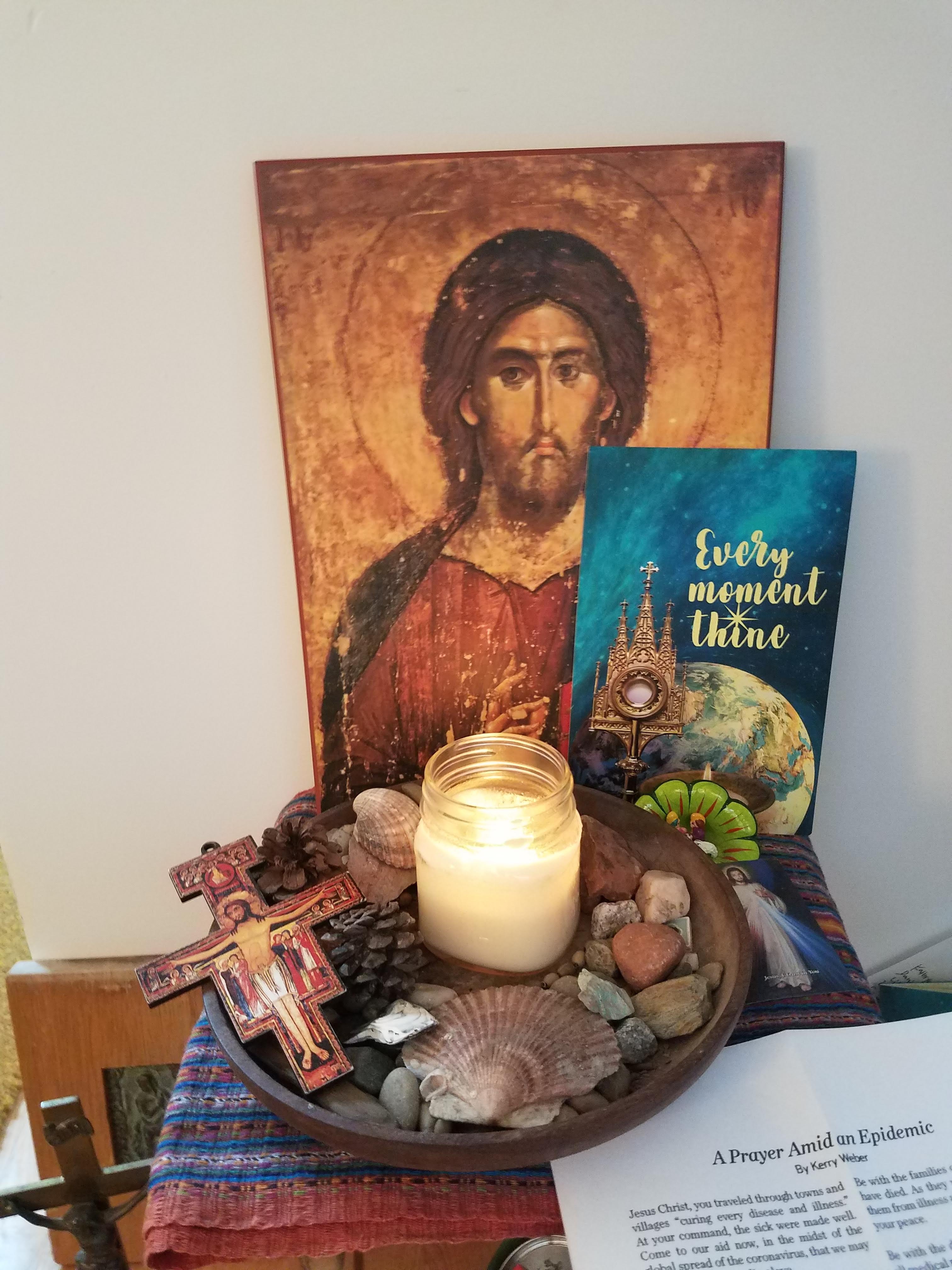Living the gospel amid a pandemic
Sisters were asked how their lives have been affected by the coronavirus pandemic, and how, as sisters, they can respond to the world and live out the gospel.
Two Days at a Time
“If living under the shadow of a pandemic has you a little out-of-sorts lately, a college friend who has lived through some tough things shared an approach to life that seems helpful these days. First, focus on what you need in the present moment to be okay: do you need a cup of tea? a shower? Do what you can to attend to the need of the present moment. Then think about the rest of the day: what do you need to do to make the rest of the day go okay? Do it. Then think about what you need to do today so that tomorrow will be at least minimally okay: do that load of laundry, or arrange for needed childcare [monastery duties to be covered?], or whatever. Then stop! That’s all you can do for now, and that’s okay.
I think in some ways this is an experience of poverty most of us in the middle class are unfamiliar living with. When we talk about the culture of wealth and its lens on time, it’s all about the past – where you come from and the tradition you are upholding. In the culture of the middle class, it’s all about being thrifty and planning for the future. [Stocking up on toilet paper, anyone?] In the culture of poverty, the future is not assured, so there’s only today, the present moment. As a long-term life strategy, it has its limitations, but there’s also a blessing in just focusing on today, and Christ here, now. May you all have the graces you need!” -Sr. Jeana Visel, OSB

“As I write this, I am in my 10th day of self-quarantine. I have barely been outdoors and I had to give up some ministries and experiences that are very dear to me, such as my weekly visits to the Cook County Jail. Yet my days remain full, as I blend prayer, community time and new forms of service into my life. I continue to do all I am able to support my friends and family members, plus my writing and spiritual direction ministries continue. And, in response to one of my close friends sharing how hard it is for her to suddenly be a new homeschooling single mom, I was inspired to offer 30 minute faith formation and social studies lessons to children online. I created a schedule of offerings and emailed it out to people who expressed interest and had nearly 20 children signed up for lessons in my online classroom in under 24 hours! I hope that this offering provides some structure and enrichment to children, who I believe are among the most vulnerable in our communities during any crisis.
I’ve been thinking a lot about the role of women religious while I’ve watched this crisis unfold so far. I am still praying about it and am not sure what’s God’s will is for us exactly, but it is clear to me that the Gospel mandate to love God, self and others remain central to our vocation. For some of us this means we must be on the front lines of service, and take a step away from living closely with our sisters, so we don’t carry the virus into a convent. Others are truly called to shelter in place and try on monastic rhythms of prayer, solitude and service for a while. None of us are invincible to harm, we all are vulnerable; being comfortable with our death and meditating on it and preparing for it also seems appropriate somehow, especially in this Lenten season.” -Julia Walsh
“As more and more people are unable to leave their houses and gather for traditional liturgical prayers in churches, I am seeing a variety of online prayer groups. Not only Masses which are being streamed, but faith sharing and group lectio divina, in which small (or large!) groups, led by priests, brothers, sisters, pastoral ministers or simply interested lay people, can gather to strengthen and explore their faith together. I will be hosting online RCIA meetings for the Sheil Catholic Center at Northwestern University, starting this week–these meetings support not only our elect whose baptism has been postponed indefinitely, but all of us who journey with her. Since most of us lack regular access to sacraments, we are learning (and developing) new ways to pray together–ways that may stand us in good stead as the number of priests continues to decline. While I would never want to see online communication replace face to face community, these new groups give me hope that we are building a new way to be church.
As monastics, my community has always recognized the centrality of liturgy, particularly Liturgy of the Hours, not only in our lives, but in the life of the Church. With public liturgies in the Archdiocese of Chicago and many other parts of the United States suspended due to the Coronavirus, we are increasingly aware that our community liturgies more than ever, constitute the Church at prayer. Most of the community falls into the vulnerable population, so our movements outside the monastery are limited and our concrete efforts to assist with the effects of the pandemic are also limited. But we are aware in a new way that through our liturgical prayer, the whole world is drawn closer to God and we are more conscious of holding that world, so much in need of it, in our prayer.” -Belinda Monahan


